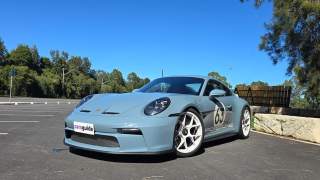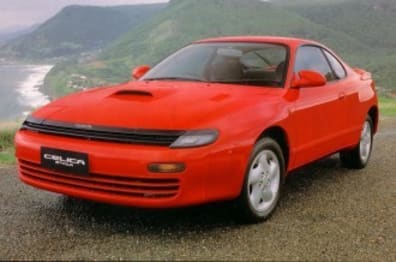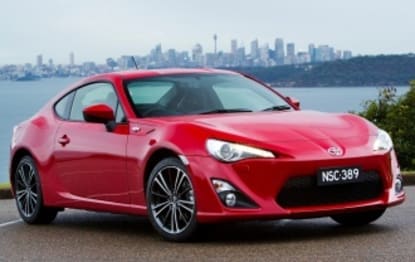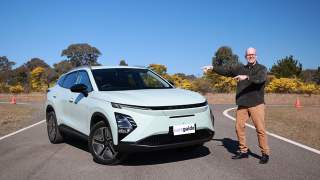
Used Toyota Celica review: 1990-2006
- Toyota Celica
- Toyota Celica 2000
- Toyota Celica 2006
- Toyota Celica 1996
- Toyota Celica 1990
- Toyota Celica 1991
- Toyota Celica 1992
- Toyota Celica 1993
- Toyota Celica 1994
- Toyota Celica 1995
- Toyota Celica 1997
- Toyota Celica 1998
- Toyota Celica 1999
- Toyota Celica 2001
- Toyota Celica 2002
- Toyota Celica 2003
- Toyota Celica 2004
- Toyota Celica 2005
- Toyota Celica Reviews
- Toyota Reviews
- Toyota Coupe Range
- Toyota Hatchback Range
- Coupe
- Hatchback
- Toyota
- Used Car Reviews

...and what to watch for when you are buying it.
Toyota Celica was king of its market segment in Australia for many years, later suffered from a lack of buyer interest in coupes that was such a feature of the early years of the 21st century. So much so that, after struggling on for quite a while, the Celica was quietly slipped from the new-car market in March 2006.
All that has changed, with the introduction of the Toyota 86 and its near-identical twin the Subaru BRZ, looking like re-igniting the coupe market. The last of the Celica range, introduced to Australia in November 2000, is hotter than the models that preceded it, most of which were cafe cruisers rather than genuine bruisers.
On the other hand the post-2000 model is almost too sporty for those who do like to potter along, it has to be driven at least moderately hard or it can feel like a bit of a dog at times.
Celica is well-built and carries the traditional Toyota reliability. Under the skin it’s a relatively simple design sharing many of its components with more mundane cars. But on the surface it has the sort of looks trendy buyers of all ages just love.
Two Celica body types are offered: a three-door hatchback (Toyota calls it a liftback) and a two-door coupe. The liftback has dominated in recent years as the practical nature of the vehicle appeals to those who use a Celica as their sole means of transport.
Rear seat room is more suited to small children than to teenagers or adults. Get the kids to try the back seat during your road test. And make sure they also check it for outwards visibility. Claustrophobia may bring on argumentative boredom, as well as car sickness.
Handling in the older models is good and the Celica will generally please all but the hardest drivers in the way it performs. The 2000 Celica is much sharper on the road, with quick turn in and good feedback through the steering. It achieves this with little loss in ride comfort compared with the previous generation cars.
The turbocharged rally-based Toyota Celica GT-Four is also a hot performer, and is far more expensive than the rest of the range. It was sold from 1990 to 1992, then again in a limited production run in 1994 as the GT-Four Group A Rallye, a full-on sports machine. It appeals very much to the serious driver.
In the standard Celica the engine was a 2.2-litre unit until the size dropped to 1.8 litres with the year 2000 model, the latter carrying a lot of high-tech features to lift its power to considerably more than the older engine.
The downside of the 1.8-litre is that you don’t get a great deal of power or torque at lower engine speeds so you have to work at keeping it on the boil. Which is fine for the keen driver but those simply looking for a visually attractive car may find it all a bit much after a while.
The Celica GT-Four turbo engine is a complex 2.0-litre unit with plenty of torque at most revs. It’s at its happiest when worked hard and turbo lag can be frustrating at times. Transmission options are five-speed manual and four-speed automatic in the standard models. The hot GT-Four comes only as a five-speed manual.
Celica repairs are relatively easy if you know your way around a car. There are Toyota dealers in just about any area of significance within Australia, but not many in the remote bush will carry parts for Celicas. Parts are generally reasonably priced.
However, service and repairs on the GT-Four should be left to professionals as it’s a very specialised machine. Insurance on the standard Toyota Celica is relatively low (for a sports coupe, that is) but the GT-Four will cost big dollars to insure because of its turbo engine and sporting nature.
WHAT TO LOOK FOR
Check that the engine starts promptly, idles smoothly, accelerates without hesitation and doesn't smoke from the exhaust tailpipe. The latter is likely to be at its worst when you accelerate hard after the engine has been idling for a while.
Automatic transmissions which are slow to go into Drive or Reverse from Neutral or Park may be worn out. Also feel for harsh changes and for changes which probably weren’t necessary.
If the gearchange in a manual car is sloppy or too tight there could be problems. During the test drive do a couple of fast downchanges from third to second and feel for baulking and listen for crunching. Both indicate an overhaul is due, though it may only be a clutch adjustment problem.
Make sure the brakes operate without too much effort and pull the car up cleanly without one wheel locking before the others. If ABS is fitted you should feel for a pulsing through the brake pedal on very hard applications.
Feel for a car which wanders to one side during your test drive. It may have been incorrectly repaired after a crash, or it could have front wheel alignment problems.
Rust isn’t usually a hassle, but check in the lower edges of the doors and the hatch/bootlid, the lower-rear corners of the mudguards, the door sills, the floor of the boot and around the fuel filler cover.
A Toyota Celica GT-Four which has been raced or rallied could have expensive troubles just waiting to be off-loaded on an unsuspecting new owner. Look for a roll cage, racing harnesses, navigation aids, a strengthened body shell and wide wheels and tyres.
CAR BUYING TIP
Beware the coupe with multiple accessories screwed to it. It may have been thrashed by a driver intent on showing off.
Pricing
| Year | Price From | Price To |
|---|---|---|
| 2006 | $3,740 | $6,600 |
| 2005 | $3,300 | $6,160 |
| 2004 | $3,300 | $7,370 |
| 2003 | $3,300 | $6,160 |
| 2002 | $3,300 | $6,160 |
| 2001 | $3,300 | $6,160 |
| 2000 | $3,300 | $6,160 |
| 1999 | $2,970 | $6,160 |
| 1998 | $2,860 | $5,830 |
| 1997 | $2,640 | $5,500 |
| 1996 | $2,640 | $5,500 |
| 1995 | $2,640 | $5,500 |
| 1994 | $2,640 | $9,900 |
| 1993 | $2,640 | $4,730 |
| 1992 | $2,640 | $10,890 |
| 1991 | $2,640 | $10,230 |
| 1990 | $2,640 | $9,790 |
Pricing guides
Range and Specs
| Vehicle | Specs | Price* | |
|---|---|---|---|
| SX | 2.2L, ULP, 5 SP MAN | $2,860 – 4,510 | 1990 Toyota Celica 1990 SX Pricing and Specs |
| SX | 2.2L, ULP, 5 SP MAN | $2,640 – 4,070 | 1990 Toyota Celica 1990 SX Pricing and Specs |
| GT-4 Turbo | 2.0L, ULP, 5 SP MAN | $6,930 – 9,790 | 1990 Toyota Celica 1990 GT-4 Turbo Pricing and Specs |
Other cars to consider
$2,750
Lowest price, based on third party pricing data









